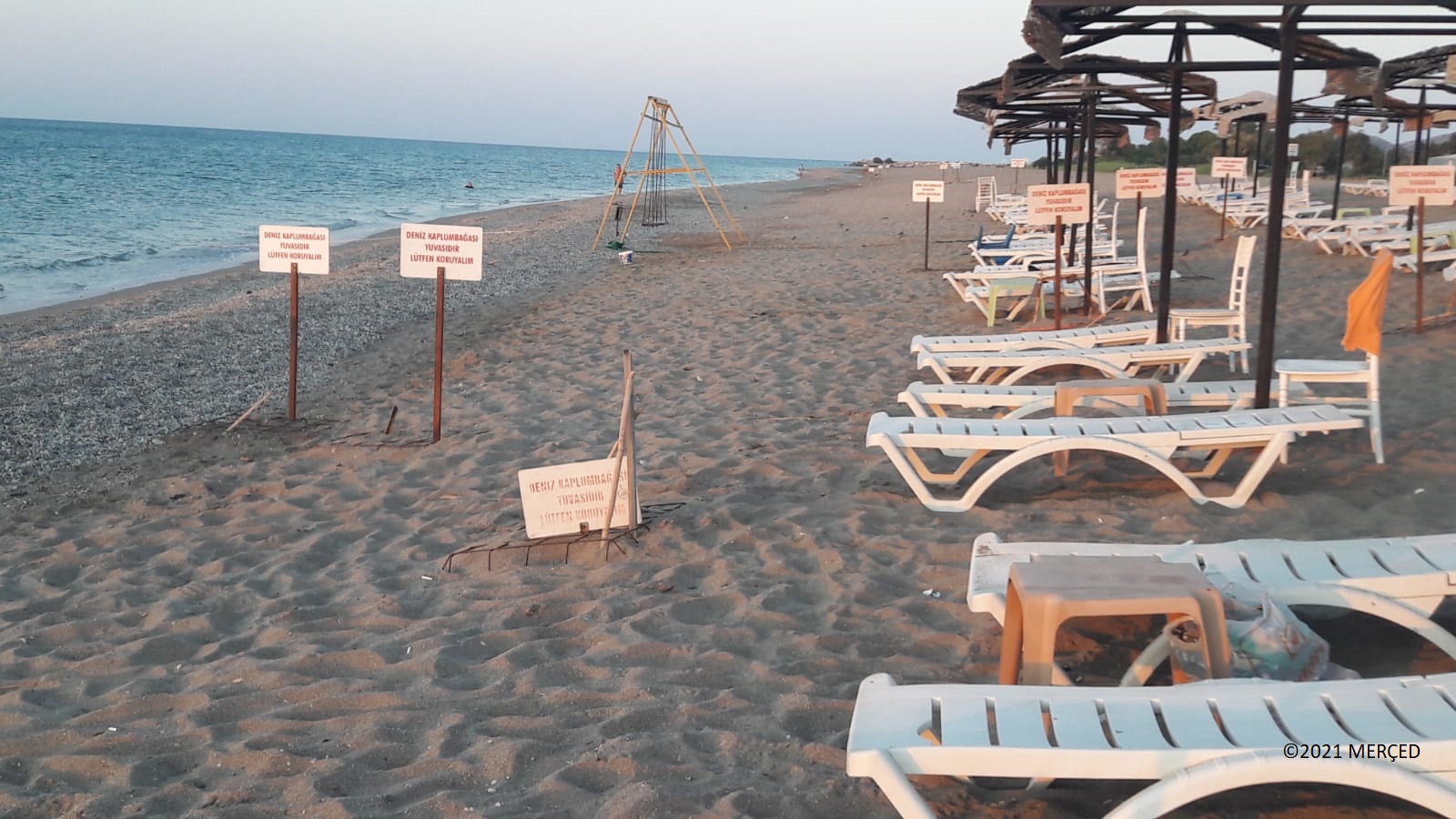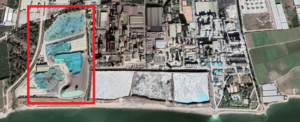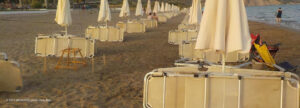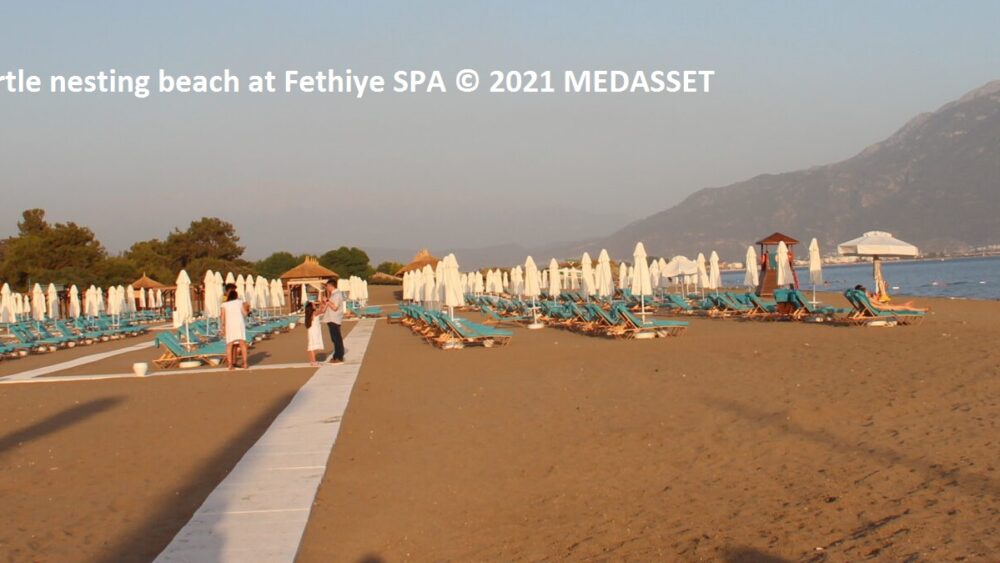December 16, 2021
For the 33rd year in succession, MEDASSET participated in the Standing Committee Meeting of the Bern Convention (Council of Europe, 29 Nov. – 3 Dec. 2021). We presented the results of our sea turtle nesting beach surveys and reported on the progress of implementation of the Convention’s Recommendations. As a result, the Bern Convention Standing Committee adopted important decisions to monitor several sea turtle habitats and urge Governments to improve protection.
TURKEY
Fethiye & Patara (Caretta caretta) [1]
Find out more about these campaigns here or download our report.
MEDASSET has been conducting assessments and campaigning to improve the protection of loggerhead nesting beaches in Patara and Fethiye since 1988. Both sites are ”Specially Protected Areas” (SPAs). We found that, disappointingly, the majority of the Recommendations adopted by the Bern Convention in 2015 (No. 182 and No. 183) have not been implemented.
In Fethiye, conservation status of the nesting beaches further deteriorated. In complete disregard of the Bern Convention’s Recommendation, more hotels and beach bars were constructed on and behind one of the last remaining pristine beaches. The site seems to lack appropriate management plans, zoning and personnel. Lack of beach furniture management, lack of information signs, no vehicle access control, severe light pollution and human presence at night, are among several unresolved conservation problems. The only exception was street light improvement to reduce light pollution along 1.5 of 8 km of the nesting beaches. To date the majority of measures under Recommendation No. 183 (2015) have not been implemented. It is highly questionable whether the coastal zone of Fethiye can be considered a “protected” area based on the ongoing destructive development and MEDASSET called for a major shift in policy for Fethiye.
In Patara, there was no significant improvements and conservation problems remain: no local management staff on site and insufficient nest monitoring personnel, lack of zoning and of information signs, vehicle access, poor beach furniture management, etc. Inside Patara’s unique archaeological area, in proximity to the beach, construction of 312 holiday homes continues. Through our campaign we are urging authorities to adequately protect the habitat from disturbances, which are expected to increase manyfold due to the likely increase of the summer population by at least 120%. Patara’s nesting beaches have been relatively safeguarded against development to date and with increased management and control, this unique natural and heritage site could become a showcase example.
Decision: “[…] The Committee acknowledged the complainant’s ongoing concerns that the conservation status of the nesting beaches has deteriorated, and that new buildings have been constructed last year as well as in previous years in Fethiye. The Standing Committee also expressed its concerns regarding the redetermination of the SPA’s zoning in Patara. The Committee requested that the next Government report include an action plan for implementation of all points of the Recommendations before the nesting season, including Management plans and details on zoning at both sites.[…] The file remains open.”
[1] Sporadic green turtle (C.mydas) nesting has been recorded at both sites.

Vehicles drive over nests in Patara due to lack of vehicle access control © 2021 MEDASSET
Anamur (Caretta caretta) [1]
Find out more in the NGO report.
Anamur beach is the 2nd most important Caretta caretta nesting site in Turkey and 4th in the Mediterranean region, and is protected by national and international law. The 1998 Recommendation adopted by the Standing Committee stressed the need for Environmental Impact Assessments and inter-ministerial compliance, as well as urgent and stringent measures to enforce legislation against illegal sand extraction and coastal development.
The complaint and report submitted by MERÇED was presented by MEDASSET and was discussed by the Standing Committee as a possible case file. To date, the beach area destroyed by the illegal construction of a picnic area in 2019 by the local Municipality has not been fully restored to its natural state. In addition, light pollution, sand extraction and non-compliance by the local businesses to national legislation are among other conservation problems recorded in the area. Moreover, another larger ‘Beach Arrangement Project’ has been proposed and despite the long-term monitoring and conservation efforts by MERÇED, no attempt has been made by the authorities to consult with the NGO during the new project plan’s evaluation process. The local NGO stressed the necessity for transparency for all current and future plans or projects to avoid negative impacts on the protected habitat.
Decision: “[…]The Standing Committee noted progress in certain areas by the authorities, but also recognised that additional actions are necessary to improve law enforcement. Therefore, the Standing Committee would need to see a comprehensive response from the authorities before it could consider dismissing this complaint, as had been requested by the government. The Committee thanked the national authorities for their efforts and encouraged them to consider any possible development project thoroughly, continue discussions with the Municipality on alternative projects, and involve local environmental NGOs in any decision-making. The Committee also took note that the complainant requested to open a file and mandate an on-the-spot appraisal. […] The complaint remains a possible file”.

Lack of enforcement of conservation measures places nests at risk from tourist activities ©2021 MERÇED
Kazanli (Chelonia mydas)
Find out more about the campaign here or download our report.
Kazanli hosts one of the most important nesting sites for green turtles in the Mediterranean. Part of the site has been designated as a “1st Degree Natural Protection Area”. Conservation problems were first reported to the Bern Convention in 1999 and Recommendation No. 95 was adopted in 2002. Nineteen years later, progress is limited and significant issues remain. Of particular concern is the lack of erosion control and the remaining 500.000 tons of toxic waste that are located next to the nesting beach, posing a severe hazard to human health and the environment. Other threats identified include wastewater, litter, light pollution, lack of public awareness and lack of removal of illegal building and greenhouses.
Decision: “The Committee took note of the complainant’s concerns that progress […]was lacking, especially concerning the erosion of the nesting beach and building removal. […] The Standing Committee urged the Turkish authorities to implement all conditions of Recommendation No. 95 (2002) and to accelerate the neutralisation process of the remaining hazardous wastes, hoping that in 2023 all waste would be neutralised. Both parties were invited to submit updated reports in two years.”

Waste deposits next to the nesting beach © 2021 MEDASSET
GREECE
Southern Kyparissia Bay (Caretta caretta)
Find out more about the campaign here or download our report.
Kyparissia Bay hosts one of the largest reproductive loggerhead turtle population across the Mediterranean. Although the nesting beaches belong to an EU NATURA 2000 site, the Greek government has failed to introduce and enforce the necessary conservation and management measures, six years after the Bern Convention Recommendation (Dec. 2014) and four years after the condemning Judgment of the European Court of Justice (Nov. 2016). Enforcement of the Presidential Decree adopted in October 2018 affording legal protection to the site, is non-existent and we strongly reiterate the urgent need for the implementation of a Management Plan, as the Decree does not address several major issues. At the 2021 Bern Convention Standing Committee meeting, MEDASSET in collaboration with ARCHELON presented the continued degradation of the site and its inadequate management during summer 2021.
Threats recorded included ongoing construction of illegal buildings along the coastline, continued planting and farming of alien species on the nesting beaches and dunes, nearshore fishing, vehicular access to the nesting beaches, lack of beach furniture management, and light pollution.
Decision: “The Standing Committee noted that despite national authorities’ monitoring and mitigation initiatives, the enforcement of relevant national laws was still low, as camping and fishing activities as well as night pollution continue to disturb nesting attempts and vehicles continue to access nesting beaches. The Committee noted that the limited vegetation in the coastal dune area complicates enforcement of existing legislation. The Committee urged the national authorities to fully implement Recommendation No. 174 (2014), in particular with a view of Point 3 of the Recommendation, so that steps are taken to restore the original sand dune and forest habitat and fines are imposed to halt illegal activities on nesting beaches. The Committee noted the need for a Management Plan, which is envisaged for 2022 after the completion of special environmental studies, that can enable the implementation of several points under the Recommendation. The European Commission also provided information that, in December 2020, the European Court of Justice (ECJ) had condemned Greece for failing to establish the necessary conservation objectives and measures for several sites of community importance, including Thines Kiparissias. In April 2021, national conservation objectives had been developed, but site-specific conservation objectives were still to be adopted. The file remains open”.

Planted young trees and cultivation of invasive species on the core nesting area of Kalo Nero ©2021 MEDASSET, photo Nadia Andreanidou
Laganas Bay, Zakynthos (Caretta caretta)
Find out more about the campaign here or download our report.
Laganas Bay hosts one of the most important breeding areas for Caretta caretta in Greece and the Mediterranean. The case was first brought to the Bern Convention by MEDASSET in 1984, and as a result, the Standing Committee issued Recommendation No.9 in 1987, to ensure the site’s protection. Over thirty years later, sea turtles and their habitats in Laganas Bay are under immense stress. Despite the site’s designation as a National Marine Park under a Presidential Decree in 1999, the Greek government has failed to provide adequate protection and the “case file” was re-opened in 2020 by the Standing Committee. In 2021, illegal activities continued, including human presence in restricted areas or at prohibited times, unregulated maritime activity and operation of illegal businesses. A key driver is the lack of enforcement by competent authorities and insufficient government funding for wardening. MEDASSET called upon the Greek government to urgently increase efforts for the adequate protection of Laganas Bay.
Decision: “[…]The Committee called for strong measures to be put in place to ensure that the integrity of the broader area would not be adversely affected in terms of its ecological functions. Despite national authorities’ monitoring and mitigation initiatives reported in August, as per the complainant’s information, the enforcement of relevant national laws was still low, therefore the Committee encouraged the national authorities to intensify their efforts at land and sea and, pending Court decisions, enforce demolition and restoration orders for illegal constructions within the Zakynthos National Marine Park (illegal landfill site, illegal road in the protected landscape between Gerakas and Daphne, two illegal buildings in Nature Protection P2 of Gerakas, illegal constructions in Daphne beach as per point 1 of the Recommendation[…]The file remains open.”

Sunbeds next to turtle nests, not removed during the night, Eastern Laganas Bay© 2021 MEDASSET, photo Vicky Rae
CYPRUS
Akamas peninsula (Caretta caretta & Chelonia mydas)
For more details see Terra Cypria’s 2021 report.
Conservation problems at nesting sites in Akamas and Limni were brought to the attention of the Bern Convention in 1996 by MEDASSET on behalf of NGO Terra Cypria and a case file has remained open since 1997, making it one of the longest-standing cases of the Bern Convention. Terra Cypria provided evidence that implementation of the Convention’s 2016 Recommendation is still outstanding, no legally binding management plans are yet in place and effective enforcement is needed. MEDASSET supported Terra Cypria’s calls for urgent action by authorities to ensure enforcement of management measures on all nesting beaches.
Decision: “The Committee however remarked that minimal progress in the implementation of the majority of the thirteen points of Recommendation No. 191 (2016) had been achieved. […] The Committee urged the Cypriot authorities to step up efforts to implement all points of the Recommendation. The file remains open.”




Comments are closed.